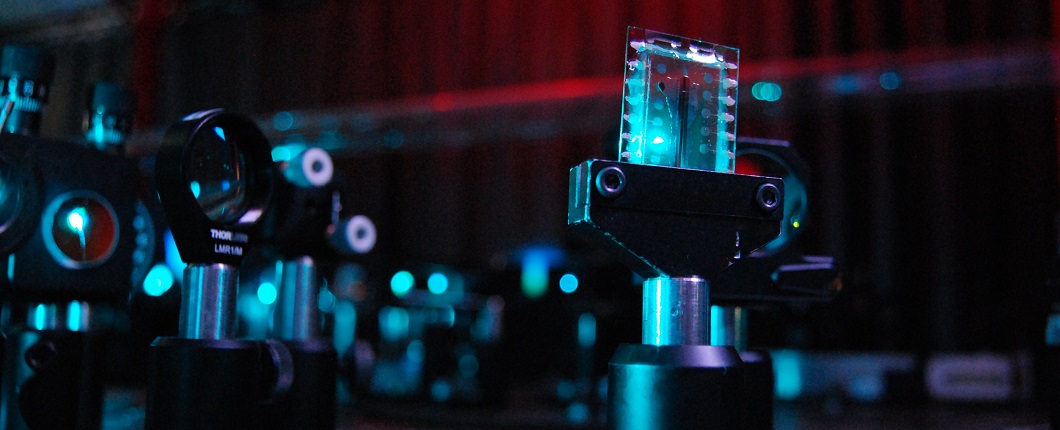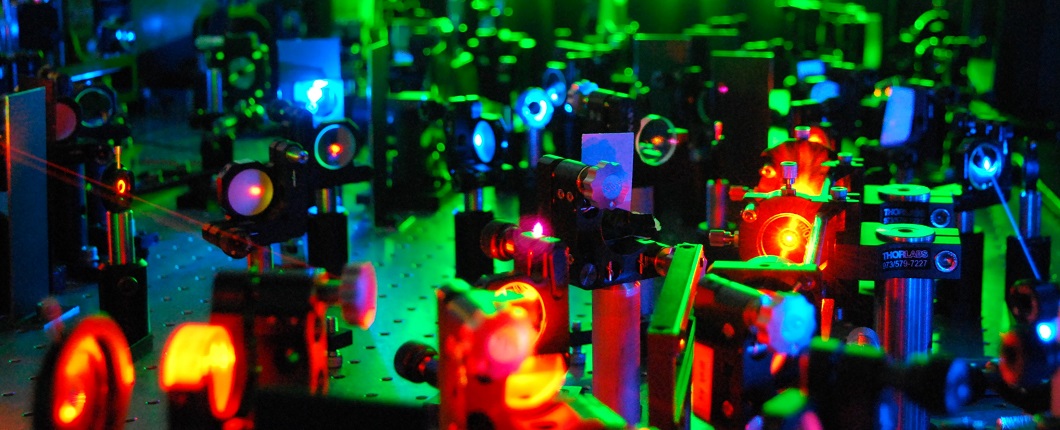Science

The Physics Department is committed to providing internationally recognized training to the physicists of the future. Our comprehensive undergraduate offering provides students with the requisite skill set to further their studies or enter the private sector. The department is research orientated, providing opportunities to students to further their careers under the guidance of internationally recognized researchers.


empty
empty tag
What type of job will I do after I have completed my Physics degree?
This is an important question. Physics is not a vocational training programme such as accountancy or law, where you become an accountant or a lawyer. A Physics degree prepares and trains you to solve problems, and problem solvers are always in high demand. Our graduates end up in a wide array of different sectors, ranging from academia, research institutes, financial companies, consultancy groups, banking, information technology, and of course, technology companies. It really depends on the individual where they will end up. What remains a fact is that students who leave Stellenbosch with an advanced degree (Hons, MSc, PhD) are in high demand both locally and internationally, and seldom struggle to find their next opportunity, whether it is further studies or a permanent job.
What extra student support is provided at undergraduate level?
Lecturers are always available, also outside of the lecture time, for consultation. You can make an appointment with your lecturer by e-mail. Most modules have senior or postgraduate student demonstrators or tutors involved in the handling of tutorials and experiments. During tutorials, you have a lot of time to ask for extra explanations from the lecturer or tutors. Extra tutor sessions are also often offered, depending on the specific module.
Can I do research during my undergraduate studies in the Physics Department?
There are different research internship opportunities within the Physics Department. The National Institute for Theoretical Physics rolls out research internships annually in the periods between mid-June to mid-July and mid-November to mid-December. There are also other ad-hoc opportunities. It is best to discuss these options with your lecturer.
Do I need to own a computer?
Owning a computer is not a requirement although it will make your life easier. All students at Stellenboch University are provided with access to the University’s network, along with a university e-mail address that acts as main communication channel between lecturers and students outside of class. All students also have access to computer user areas where computer-based assignments can be completed.
Do I need prerequisite knowledge of programming, or need computer skills?
As part of the Physics degree programme, you will be taught all the computer-programming skills that you will need. Of couse, having basic computer literacy and a familiarity with computer programming will count in your favour, but is nou a prerequisite.
What is the admission requirements for enrolment in a BSc in Physics degree programme?
For details on the latest enrolment requirements, please consult the University website: http://www.sun.ac.za/english/maties/Documents/Science.pdf
How big is the typical first year Physics class?
The Physics 114 class is usually about 200 students, of which about 40 are registered for a Physics degree. The rest require Physics as part of their specific BSc program.
What are the research areas of the Physics Department?
The principal areas of research are Nuclear Physics, Laser Physics, Radiation and Health, and Theoretical Physics. Each researcher within the Department has his or her own research interests. More information is available on the Department’s website.
